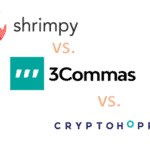Following Russia’s invasion of Crimea in 2014, the United States banned Americans from doing business with Russian banks, oil and gas producers, and other companies. The impact on Russia’s economy was immediate and significant. According to economists, sanctions implemented by Western countries cost Russia $50 billion every year.
Since then, the global market for cryptocurrencies and other digital assets has grown dramatically. This is terrible news for sanctions enforcement but excellent news for Russia.
The impending economic repercussions are likely to hurt Russia’s economy as the U.S. and other Western powers line up to apply sanctions for its armed foray into Ukraine.
However, because of the secrecy and decentralisation of digital tokens, there are concerns that the expanding cryptocurrency sector could allow oligarchs loyal to Russian President Vladimir Putin to avoid the effort to put financial pressure on Moscow.
The Biden administration imposed new sanctions on Russia on Tuesday in response to the turmoil in Ukraine, aimed at limiting the country’s access to foreign finance. However, experts say Russian firms are planning to mitigate some of the worst effects by striking arrangements with anyone willing to work with them wherever in the world. They claim that these entities can then employ digital currencies to circumvent government control points, such as bank transfers, to prevent contract implementation.
Capital Economics estimates that targeted sanctions on Russian central banking and economic sectors might cut 1-2% off the country’s GDP (GDP).
However, there is a disagreement about whether those sanctions are far-reaching enough to persuade Putin to abandon his effort, especially since Russia has a sizable war chest fueled by rising energy prices.
Sanctions are among the most potent measures available to the United States and European countries for influencing the behaviour of countries that are not considered allies. Because the dollar is the world’s reserve currency and is used in payments worldwide, the United States, in particular, can use sanctions as a diplomatic tool. However, officials in the United States are becoming more aware of the potential for cryptocurrencies to mitigate the impact of sanctions and intensify their monitoring of digital assets.
A government creates a list of people and businesses that its citizens must avoid imposing sanctions. Anyone caught interacting with a member of the list will be fined severely. However, the global banking system is the essential key to any effective sanctions policy. Banks play an essential role in compliance because they observe where funding comes from and goes. Anti-money laundering regulations oblige them to prohibit transactions with sanctioned companies and report what they see to authorities. However, if banks are governments’ eyes and ears in this arena, the proliferation of digital currencies has blinded them.
What Might Russia Do?
Russia might use a variety of cryptocurrency-related technologies to get around sanctions. The objective is to find ways to conduct business without ever using U.S. money.
Russia is developing its own central bank digital currency (CBDC), a “digital ruble” that may be used without being converted into U.S. dollars by trade partners. Hacking tools like ransomware can help Russia steal digital currencies and regain revenue from sanctions.
Cryptocurrency transactions are transparent because they are recorded on the underlying blockchain, but new methods developed in Russia can help to obscure the origin of these transactions. As a result, other parties would trade with Russian businesses without being discovered due to this.
Sam Bankman-Fried, a crypto billionaire, said,
“What is BTC’s role in this situation? On the one hand, if the world gets crazier, people will have less disposable income. On the other hand, selling BTC – as well as stocks and other assets — to pay for the war.”
“On the other hand, Eastern European currencies are likely to be destabilised due to this. And, more broadly, for the financial systems of Eastern Europe. It’s possible they’re seeking alternatives. Where would you put your money if you were in Ukraine right now?”
“As a result, there are discussions on both sides about what should happen to BTC right now. Based on the fundamentals, I’m not sure I would have predicted it would fall.”
@SBF FTX believes that the world is divided into two categories of people: fundamental investors and algorithm followers.
Fundamental investors are unsure which way BTC/USD should travel in the current situation. So algorithm followers consult the data. Well, there’s been a strong link between crypto and equities over the last year.
The fundamental cause is monetary policy: changes in inflation and interest rate expectations affect the USD and other fiat currencies.
“More inflation –> crypto + equities up vs USD.”
Fundamental investors are indifferent, but algorithmic investors predict the S&P500 to fall 4%, implying that BTC will fall 4*4% = 16% based on historical data.
There’s a push and a pull, with fundamental investors purchasing and algorithmic investors selling; on the whole, BTC falls somewhere in the middle, down 8% on the day.
The Ministry of Defense of Ukraine requests donations via bank transfers on UkraineNOW, but notes that “national legislation prohibits the Ministry of Defence of Ukraine from using other payment systems (‘Webmoney,’ ‘Bitcoin,’ PayPal,’ etc.).” Unfortunately, the same decentralised network that attracts Ukrainian fundraisers to cryptocurrencies could potentially benefit Russia. Among sanctions being viewed against Moscow is the omission from the Swift system, which enables interbank settlements between financial institutions around the world.
“North Korea has carried out extensive hacking operations intending to steal cryptocurrency from exchanges and DeFi platforms,” said Caroline Malcolm of Chainalysis. “They’ve been able to smuggle billions of dollars into the country while avoiding sanctions.” Iran has also used cryptocurrency to bring money into the country, but they mined it rather than hacking it.
“The cryptocurrency ecosystem, like the traditional financial system, can put measures in place to identify transactions from identified sanctioned entities,” she said. This could primarily be accomplished by analysing data from blockchains, which are public ledgers that record all cryptocurrency transactions.
The legal position of cryptocurrencies in Russia is in flux, with the government pushing for their legalisation to attract international investment and bring domestic trading out of the shadows. At the same time, the central bank claims they are a pyramid scheme and should be banned. Putin instructed them to seek a swift agreement last month, but top government officials have yet to decide on how to regulate cryptocurrency.
However, millions of Russians are already entrenched in the digital world, with cryptocurrencies valued at more than 2 trillion rubles ($22.9 billion), per a recent government study.
According to data from Singapore-based payment gateway TripleA, more than 17 million Russians, or around 12% of the overall population, own cryptocurrency. With additional sanctions on the way, it may be in Russia’s best interests to allow wealthy individuals to trade in cryptocurrency regardless of its legal status.
Following Russia’s invasion of Ukraine, U.S. stocks initially fell, with the S&P 500 Index shedding as much as 2.6% and the tech-heavy Nasdaq 100 dropping 20% from its last record high in November. Stocks have recovered some of their losses, with the Nasdaq 100 now in the black. Bitcoin fell as much as 8.5% to $34,337, increasing the total loss to about 50% since November’s all-time high.









